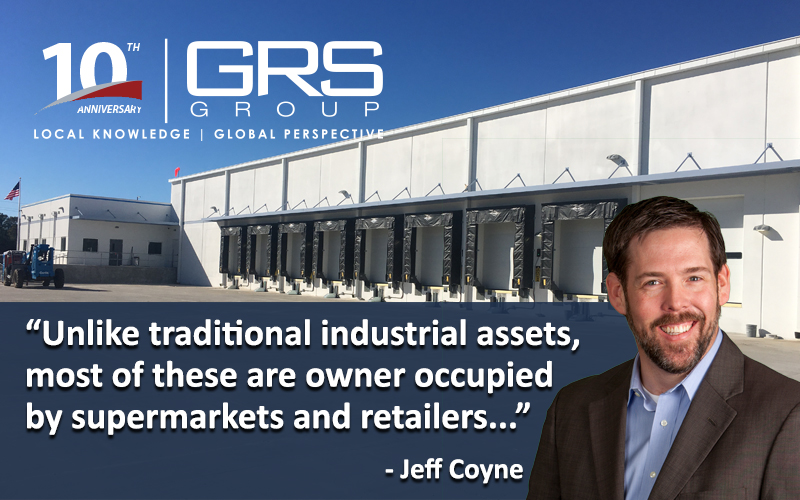As much as online shopping is given credit for negatively impacting the shopping-center sector, there is no denying the positive impact it has had on industrial buildings. Vacancy for those assets was at a near-record low during the third quarter, according to a Newmark Knight Frank report, though plenty of product is continually coming on the market, with 312.1 million square feet currently being built.
Within that space, niche cold-storage facilities are experiencing coinciding demand and activity, and a lot of that has to do with same-day grocery and pharmacy shopping and delivery that is increasingly expected by consumers in place of visiting physical stores.
A recent report by Cushman & Wakefield (download here) on the strength of niche commercial real estate sectors, such as seniors housing and data centers, in a potential economic downturn, touched on cold storage’s merits.
Like the overall industrial sector, cold storage is experiencing similar strong demand, with vacancy rates at around four percent.
Unlike other traditional industrial assets, though, most of these spaces are currently owner occupied by supermarkets and other retailers selling perishables. That will change, though, with increased online grocery shopping. There is currently 214 million square feet dedicated for online grocery cold-storage warehousing, and demand is pushing for another 100 million square feet by 2024. Meanwhile, CBRE says there is an expected shift from storage in retail stores to industrial spaces at a total of 35 million square feet by 2024. Most of this storage is expected to take place in the form of new facilities in port cities, such as the Los Angeles and New York metro area.
Two third-party logistics companies are especially active in the space, Lineage Logistics and Americold Realty Trust,according to Cushman. Between the second quarter of 2010 and this year’s second quarter, Lineage has acquired $810 million in assets, while Americold bought $755 million.
Of the two, Americold is publicly traded. The Atlanta-based REIT operates 178 facilities in the United States and other countries totaling about 1 billion cubic feet.
In its most recent quarter, the company closed on the purchase of two competitors, Cloverleaf Cold Storage and Lanier Cold Storage, adding 24 assets to its portfolio. Its NOI came in at $121.1 million, a 23.3-percent increase from the same year-ago period, while year-over-year revenue hit $438.5 million, up 11.1 percent.
Americold and its competitors are forecast for continued growth, according to BCC Research, with a compounded annual growth rate of 8.7 percent through 2024, valuing them at $311.1 billion.
It might be a niche sector in commercial real estate, but if its growth continues, it will become an even more important small piece of the larger industry.
About GRS Group
GRS Group is a leading provider of commercial real estate (“CRE”) services worldwide. With offices across the United States, Europe, and affiliates around the globe, GRS Group provides local market knowledge with a global perspective for institutional real estate investors, occupiers and lenders worldwide. The GRS Group team has evaluated and advised on over $1 trillion in CRE transactions.
Through the company’s proprietary management process, Global Services Connection, GRS Group delivers an integrated suite of services including Financial Advisory, Transaction Management, Assessment and Title Insurance. We provide a single point of contact, capable of leveraging the GRS Group portfolio of companies and delivering customized solutions to assist our clients in achieving their investment goals.

